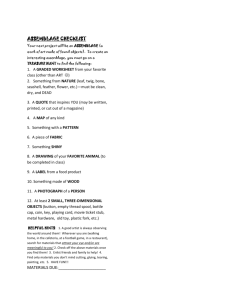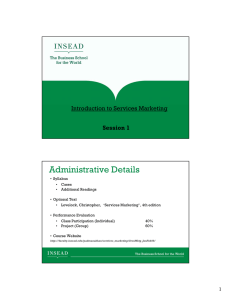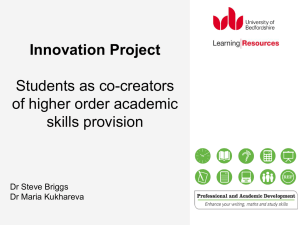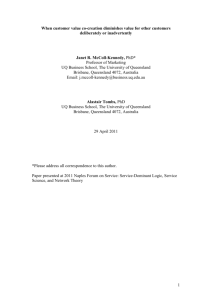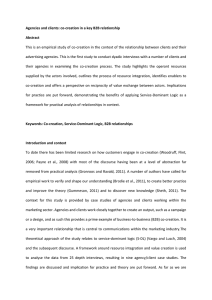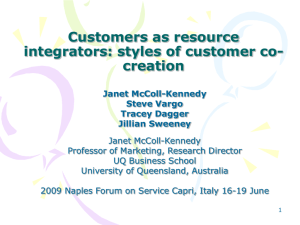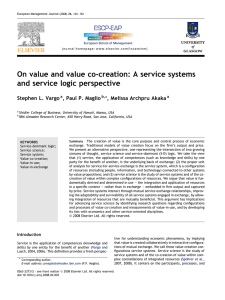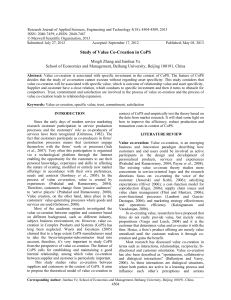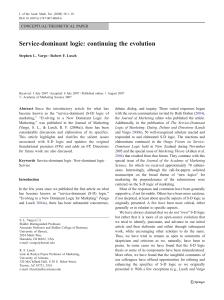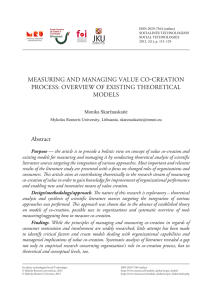Frontiers 2016 Co-creation of value in service assemblage & service innovation
advertisement
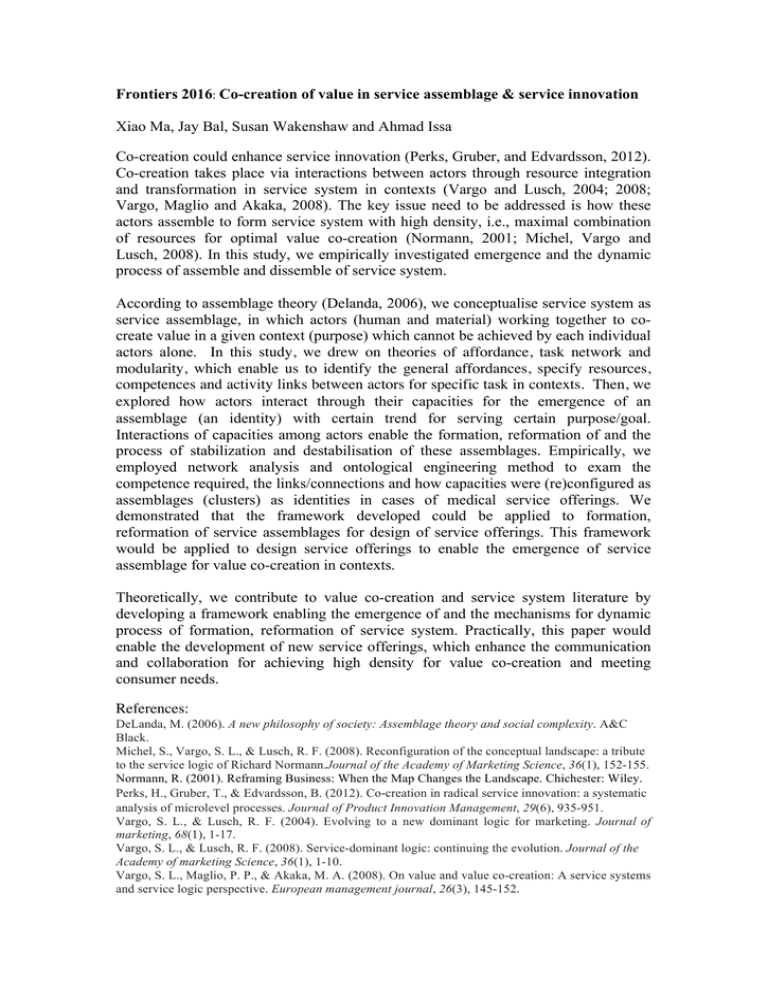
Frontiers 2016: Co-creation of value in service assemblage & service innovation Xiao Ma, Jay Bal, Susan Wakenshaw and Ahmad Issa Co-creation could enhance service innovation (Perks, Gruber, and Edvardsson, 2012). Co-creation takes place via interactions between actors through resource integration and transformation in service system in contexts (Vargo and Lusch, 2004; 2008; Vargo, Maglio and Akaka, 2008). The key issue need to be addressed is how these actors assemble to form service system with high density, i.e., maximal combination of resources for optimal value co-creation (Normann, 2001; Michel, Vargo and Lusch, 2008). In this study, we empirically investigated emergence and the dynamic process of assemble and dissemble of service system. According to assemblage theory (Delanda, 2006), we conceptualise service system as service assemblage, in which actors (human and material) working together to cocreate value in a given context (purpose) which cannot be achieved by each individual actors alone. In this study, we drew on theories of affordance, task network and modularity, which enable us to identify the general affordances, specify resources, competences and activity links between actors for specific task in contexts. Then, we explored how actors interact through their capacities for the emergence of an assemblage (an identity) with certain trend for serving certain purpose/goal. Interactions of capacities among actors enable the formation, reformation of and the process of stabilization and destabilisation of these assemblages. Empirically, we employed network analysis and ontological engineering method to exam the competence required, the links/connections and how capacities were (re)configured as assemblages (clusters) as identities in cases of medical service offerings. We demonstrated that the framework developed could be applied to formation, reformation of service assemblages for design of service offerings. This framework would be applied to design service offerings to enable the emergence of service assemblage for value co-creation in contexts. Theoretically, we contribute to value co-creation and service system literature by developing a framework enabling the emergence of and the mechanisms for dynamic process of formation, reformation of service system. Practically, this paper would enable the development of new service offerings, which enhance the communication and collaboration for achieving high density for value co-creation and meeting consumer needs. References: DeLanda, M. (2006). A new philosophy of society: Assemblage theory and social complexity. A&C Black. Michel, S., Vargo, S. L., & Lusch, R. F. (2008). Reconfiguration of the conceptual landscape: a tribute to the service logic of Richard Normann.Journal of the Academy of Marketing Science, 36(1), 152-155. Normann, R. (2001). Reframing Business: When the Map Changes the Landscape. Chichester: Wiley. Perks, H., Gruber, T., & Edvardsson, B. (2012). Co-­‐‑creation in radical service innovation: a systematic analysis of microlevel processes. Journal of Product Innovation Management, 29(6), 935-951. Vargo, S. L., & Lusch, R. F. (2004). Evolving to a new dominant logic for marketing. Journal of marketing, 68(1), 1-17. Vargo, S. L., & Lusch, R. F. (2008). Service-dominant logic: continuing the evolution. Journal of the Academy of marketing Science, 36(1), 1-10. Vargo, S. L., Maglio, P. P., & Akaka, M. A. (2008). On value and value co-creation: A service systems and service logic perspective. European management journal, 26(3), 145-152.
